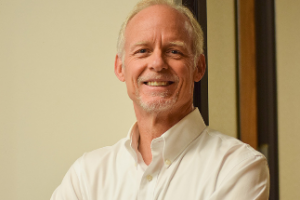Column: Catching Air
As a California attorney, I take regular continuing education classes. With Covid on everyone’s’ minds, I decided to learn something about vaccine laws. Some of what I learned was eye-opening, including the truth about three common Covid vaccine myths.
Myth 1: Covid Vaccines are FDA approved.
Reply: The vaccines have only been authorized so far on an interim basis after limited testing. This is permitted as an “emergency use authorization” (EUA) under section 564 of the Federal Food, Drug, and Cosmetic Act. The EUA procedure loosens the normal testing standards so the FDA can “allow unapproved medical products to be used in an emergency when there are no other adequate, approved and available alternatives.” Formal licensing of Covid 19 vaccines is not likely to occur until later this year after there has been more testing and observation of side effects among people who are vaccinated under the EUA.
While it is true that a certain amount of study and testing is done before granting an EUA, the EUA is based on lower standards than regular FDA approval. Every drug or medical procedure, even those fully approved by the FDA, has potential side effects which may not be discovered until months or years later. How much greater are the risks from a vaccine that is not fully tested, especially when it has been developed by drug companies rushing to make a profit, pushed along by politicians eager to take credit for a “cure” and news media constantly stoking public fear?
Myth 2: The drug companies and other medical professionals are responsible for the safety of these vaccines.
Reply: Drug companies and those involved in the development, testing and distribution of Covid vaccines are immune from any liability unless the injured party can prove ” willful misconduct” (versus the usual “negligence” standard for defective products) under the Public Readiness and Emergency Preparedness (PREP) Act (42 U.S.C. section 247d.) This loosened standard of care is, again, a function of the public health emergency as declared by the Department of Health and Human Services. It would be almost impossible for anyone injured by a Covid vaccine to prove willful misconduct, even if the drug companies were quite negligent in rushing through the development and testing process. One might even view this as giving the vaccine manufacturers a kind of license to act negligently.
Myth 3: People who take the vaccine cannot be contagious after that as “carriers” of the disease to others.
Reply: The CDC website acknowledges that “ We also don’t yet know whether getting a COVID-19 vaccine will prevent you from spreading the virus that causes COVID-19 to other people, even if you don’t get sick yourself.” The testing of the vaccines so far is simply inadequate. This is one of the reasons the CDC insists that people who take the vaccine should continue wearing their masks!
And think about this. If millions of vaccinated people mistakenly believe they can’t pass the disease to others, they will tend to go back to their pre-Covid lifestyles, spreading Covid to others without even knowing it. This could have major public health consequences resulting from vaccines that are not yet fully tested.
From a moral standpoint, we should also consider the fact that these vaccines are indirectly linked to aborted babies whose “descendent cells” were used in their development and testing. To some extent, our use of the vaccine would lend tacit approval or even encourage future medical experimentation and harvesting of aborted baby parts and tissue for medical uses.
David G. Bjornstrom is a member of the U.S. Supreme Court bar and retired California attorney at law with 38 years specializing in business, estate and... MORE »



You must be logged in to post a comment.